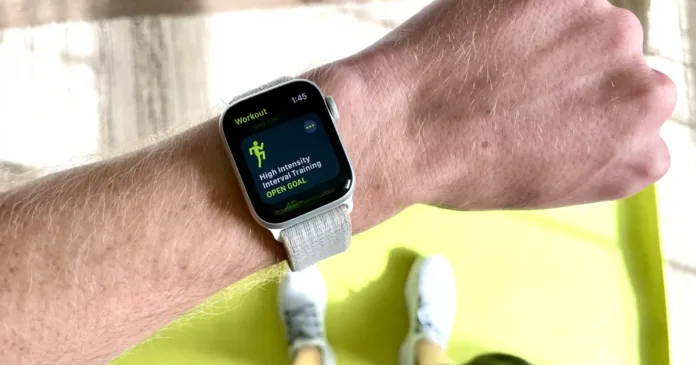
🧠 Your Smartwatch Might Be Lying to You: The Hidden Health Truths You Need to Know
In 2025, wearable tech is everywhere. From tracking your steps to monitoring your sleep and stress levels, smartwatches promise to help you become the best version of yourself. But here’s the twist: your smartwatch health data accuracy might not be as reliable as you think.
That fitness band on your wrist? It might be giving you a false sense of control over your health. Let’s dive into the real limitations of smartwatches and the critical data you’re missing — and why it actually matters.
⌚ The Rise of Wearable Health Tech
Wearables like smartwatches and fitness bands have become go-to devices for millions of users. They claim to:
Count your steps
Measure your heart rate
Track your sleep cycles
Monitor stress and oxygen levels
Even alert you about irregular heart rhythms
But how much of this information is actually accurate? Let’s find out.
⚠️ Smartwatch Health Data Accuracy: The Hidden Truth
Many users trust smartwatch data blindly. However, recent studies and expert reviews indicate that smartwatches frequently misrepresent or inaccurately calculate health metrics. Here’s where they fall short:
📉 1. Inaccurate Heart Rate During High-Intensity Workouts
Most smartwatches use optical sensors (PPG) to detect your pulse. These work fine when you’re still or walking, but during fast movements or intense workouts, readings can be off by 10–25%.
😴 2. Sleep Tracking is Often a Guess
Your watch isn’t actually watching you sleep. It guesses sleep stages based on movement and heart rate. Factors like sleeping with your hand under the pillow or being too still can confuse the data.
🧍♂️ 3. Step Counts Are Easily Misled
Many watches count steps based on hand movements — meaning washing dishes or clapping could be counted as steps.
🫁 4. Oxygen & Stress Readings Lack Clinical Accuracy
SpO2 (oxygen level) and stress detection are great marketing features, but often lack the precision of medical-grade devices.
🧠 5. Generalized Data, Not Personalized
Most watches are calibrated for an average user, not your unique body type, medical conditions, or lifestyle. This means your data may not be meaningful in a medical context.https://mus-tech.info/top-tech-devices-of-2025/
🤔 Why This Misinformation Matters
Ignoring these smartwatch limitations can lead to:
False reassurance: Thinking your health is fine when it’s not
Unnecessary panic: Overreacting to incorrect alerts
Overdependence on wearables: Ignoring real symptoms because “the watch says I’m okay”
Improper health decisions: Skipping doctor visits or adjusting medication based on smartwatch trends
📌 Smartwatch Health Myths You Should Stop Believing
🚫 Myth 1: “If My Heart Rate is Normal, I’m Healthy”
A normal reading doesn’t guarantee heart health. Your watch doesn’t know if you have blocked arteries or underlying heart disease.
🚫 Myth 2: “My Sleep Score Says I’m Rested”
A high sleep score doesn’t mean your body is recovered. Recovery depends on quality of sleep, stress levels, and physical condition — not just sleep duration.
🚫 Myth 3: “Calories Burned = Calories Shown on My Watch”
Smartwatches estimate calories using your age, weight, and activity — not actual exertion. The margin of error can be massive, especially in strength training or HIIT.
✅ What Smartwatches Do Well
To be fair, wearables aren’t all bad. They can be great for:
Building daily movement habits
Tracking trends over time (e.g., rising heart rate or poor sleep patterns)
Motivating consistent exercise
Sending emergency alerts in case of falls or heart rhythm abnormalities
Just don’t treat them like a doctor on your wrist.
🔄 How to Use Smartwatches the Right Way
If you still want to use your smartwatch — great! Just be smart about it.
✔ Follow These Tips:
Use the data for trends, not diagnoses
Don’t rely on one metric alone — combine heart rate, sleep, and activity info
Cross-check with professional check-ups
Disable unnecessary alerts to avoid stress
Update your weight, height, and fitness level in your app regularly
🧬 Future of Wearable Health Tech: Smarter, Not Perfect
In the coming years, wearable devices will become more advanced with:
Medical-grade sensors
Personalized health AI
Integration with real-time doctor feedback
But even then, it’s important to remember that no smartwatch can replace clinical judgment or deep medical testing.
📊 Quick Recap: When to Trust vs. When to Question
| Metric | Usually Accurate | Questionable Accuracy |
|---|---|---|
| Step Count | ✅ | ❌ During certain movements |
| Heart Rate (Rest) | ✅ | ❌ During workouts |
| Sleep Duration | ✅ Approximate | ❌ Sleep stages |
| SpO2 & Stress | ❌ | ✅ Only as a basic guide |
| Calories Burned | ❌ | ✅ For cardio only |
🎯 Final Thoughts
Your smartwatch is a powerful tool — but only if you understand its limits. The promise of full-body monitoring is exciting, but remember that smartwatch health data accuracy isn’t guaranteed.
Instead of blindly trusting every reading, use your smartwatch as a support system, not a substitute for your body awareness or medical care.
Listen to your body. Track your patterns. But when in doubt — trust your doctor, not your wrist.https://mus-tech.info/heres-exactly-what-you-need-to-do-to-launch-a-mobile-app/